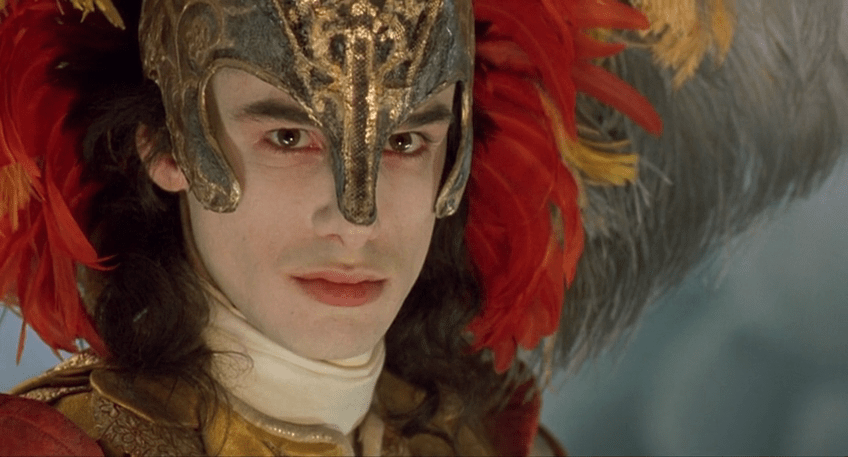Best of Cappuccino: The Grotesque and Disturbing Story of The Italian Castrati Singers
It didn't have to be this way.
Originally posted on October11, 2021.
I’m in Houston visiting my adult kids, which is why I will be posting a “Best of” series this week, articles that you may have missed reading the first time around. I’m hoping to drop in periodically with some fresh perspectives, so stay tuned.
18th century women swooned at the sound of their voices, some clutching wax figures of these gods of their idolatry whose piercing, high-pitched voices “ravished them to the core.” In Europe’s foremost opera houses, ecstatic admirers would scream, “Long live the knife, the blessed knife!” The royal courts collected them as much for their peerless voices as for their “freak show” appeal.
They were Italian castrati, whose mythic status made a scant few of them obscenely wealthy and consigned the rest to a life of poverty, ridicule, or sex work.
And yet from 1650-1750, castrati singers ruled the stages of Europe.
Each year in villages across Italy, as many as four thousand prepubescent boys of musical promise underwent the dangerous and illegal procedure of thlasiae, the cutting of spermatic cords in their testicles. This would ensure that their vocal cords never lengthened and matured, thereby ruining the high pure soprano so prized at the time. Many boys died during the procedure, either from an overdose of opium, then used as a sedative, or from post-operative infection. In the absence of sedatives, the carotid artery was sometimes compressed, knocking out the patient so the surgery could proceed—often with fatal results.
For Italian boys from poor families, the tantalizing prospect of fame and riches was reason enough to undergo the knife. To justify the procedure, parents informed the magistrates that their sons had been bitten by a wild pig or fallen from a horse, both injuries that were apparently “remedied” by castration.
Yet even in the 18th century, the practice was considered grotesque. The side effects of castration were often gigantism or obese bottoms and legs. Besides, relatively few castrati had the drive or the talent to survive the brutal regimen of voice training. A typical day at a music school in Rome might consist of one hour of singing purposely awkward music, and one hour of practicing trills and vibrato. Another hour would be spent perfecting passaggi, the transition in classical music from one vocal register to another. That would be followed by an hour dedicated to singing exercises in a teacher’s presence in order to avoid unnecessary facial grimaces, followed by another hour of literary study.
After lunch, there would be thirty minutes of musical theory, another hour of writing counterpoint, an hour spent copying music from dictation, and an hour of literary study, in addition to practicing the harpsichord, composition, and yet more literary study.
If the young castrato survived these academic rigors, he would be launched in his mid-teens into the world with a voice of such power and flexibility, no other singer could rival it.

Most Italian boys went under the knife around the age of eight, but if a boy were gelded later—say, around twelve—he might not have much sensation in his penis, but some castrati could successfully maintain an erection. The effects of castration were notoriously erratic. Those that didn’t suffer the usual side effects of feminine features, hairless bodies, and incipient breasts were in great demand with the noblewomen, many of whom lavished them with gifts. For them, it was all the pleasure of coitus with none of the associated risks.
One of the all-time greatest singers of opera was Carlo Broschi, whose stage name was Farinelli. His friend, rival, and fellow castrato, Gioacchino Conti, apparently fainted from the despondency of hearing Farinelli’s flexible, beautiful voice, a voice that was able to hit, with perfect clarity, the note of C6.
By no means did the act of castration automatically create a great singer. And yet, the desperate peasants of the 18th century, dazzled by the prospect of riches for the family and fame for their progeny, ignored the perils. As a result, the church choirs of Italy were filled with castrati who weren’t good enough to land a contract at one of the opera houses. Those who couldn’t get a contract at a church were forced to go into prostitution. Rome had entire brothels of young castrati who were as one contemporary pointed out, “as pretty as the prettiest girl.” Admirers reported how the castrati in Rome would truss their bulging bosoms in elaborate corsets and offer “to serve … equally well as a woman or a man.”
The legendary womanizer Casanova himself was not immune to their charms:
“In comes a pretty-faced abate [abbot]. His hips and thighs make me think him a girl in disguise; I say so to the Abate Gama, who tells me that it is Beppino della Mammana, a famous castrato. The Abate calls him over and laughingly says that I had taken him for a girl. He gives me a bold look and says that if I will spend the night with him he will serve me as a boy or a girl, whichever I choose.”
In another instance, Casanova could barely contain his ardor:
“The castrato had a fine voice, but his chief attraction was his beauty. I had seen him in man’s clothes in the street, but though a fine looking fellow, he had not made any impression on me, for one could see at once that he was only half a man, but on stage in woman’s dress the illusion was complete; he was ravishing. […] he was enclosed in a carefully-made corset and looked like a nymph; and incredible though it may seem, his breast was as beautiful as any woman’s; it was the monster’s chiefest charm. However well one knew the fellow’s neutral sex, as soon as one saw his breast one felt all aglow and quite madly amorous of him” […] As he glanced toward the boxes, his black eyes, at once tender and modest, ravished the heart. He evidently wished to fan the flames of those who loved him as a man, and who probably would not have cared for him if he had been a woman.”
Later, Casanova met his Waterloo in the form of a young woman, Teresa Lanti, who disguised herself as a castrato. It wasn’t unknown for women to masquerade as one in order to circumvent the ban on female singers in Italy. Casanova was besotted. He offered a gold coin to see the boy’s genitals. When Lanti refused, Casanova grabbed her in a fit of passion and discovered her secret: a false penis.
Nothing daunted, Casanova importuned her to become his mistress, and then dumped her in Venice after she bore a son that may or may not have been his.
But there is a happy ending. After being outed as a woman and not a castrato, Lanti launched a successful career in the opera houses of Europe where women were actually allowed on stage.
A changing musical aesthetic in Europe brought an end to the reign of the castrati. When Napoleon reached Naples, he shuttered the conservatories that trained them and banned them from performing, although an exception was made for the castrato Crescentini after Napoleon heard him sing.
But it was 18th century opera itself that delivered the gory tradition’s final coup de grace when an ensemble approach to singing gained popularity instead of the old-fashioned emphasis on sopranos and altos. By the time Giovanni Battista Velluti appeared at Meyerbeer’s opera Il Crociato in Egitto (The Crusader in Egypt) in London, 1824, he was laughed off the stage.
For the castrati who weren’t Farinelli, most died in poverty and were consigned to mass graves, neither man nor woman, objects of scorn and ridicule. It was the casual misogyny of the Catholic Church that led to the banishment of women from the Italian stage, which then gave rise to the castrati, who were themselves despised for “being like women.” Not until 1902 did the Vatican ban castrati from performing in the Sistine Chapel, hoping to put an end to the practice.
By then, it was far too late to save the thousands of poor Italian boys whose lives were ruined by their desperate families—boys shunned by the very society they hoped to entertain.
Do you have any wisdom to share on the castrati? If so, please leave your comments below.





